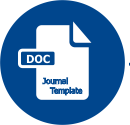Analisis Kepuasan Mahasiswa Terhadap Kualitas Layanan Program Studi Bisnis Jasa Makanan FEB-UAD
DOI:
https://doi.org/10.12928/jfc.v2i2.1938Keywords:
manajemen sumber daya, pendidikan, total quality manajemenAbstract
Penelitian ini bertujuan untuk membantu pihak manajemen Program Studi Bisnis Jasa Makanan dalam melakukan evaluasi terhadap layanan, mengarahkan upaya-upaya perbaikan dengan meningkatkan atribut pelayanan yang lemah sehingga jasa yang diberikan oleh program studi dapat memberikan kepuasan pada para pihak yang menggunakan jasanya. Penelitian yang mengintegrasikan metode Servqual dan QFD ini dilakukan di Program Studi Bisnis Jasa Makanan UAD dengan menggunakan desain penelitian campuran antara kuantitatif dan kualitatif. Penelitian didasarkan pada survei terhadap mahasiswa yang menjadi pengguna jasa program studi ini. Hasil penelitian ini diharapkan dapat menjadi salah satu rujukan dalam perumusan rencana pengembangan program studi Bisnis Jasa Makanan UAD. Selain itu juga dapat berfungsi sebagai pendukung pengembangan manajemen perguruan tinggi, khususnya tentang konsep Total Quality Management in Education.
References
Beaumont, D. 2012. Service Quality In Higher Education: The Students View Point. BSc (Honors) in Management. USA: Manchester University Manchester Business School.
Dado, J., Taborecka Petrovicova, J., Riznic, D. & Rajic, T. 2011. An Empirical Investigation Into The Construct Of Higher Education Service Quality, dalam International Review of Management and Marketing. Vol. 1, No. 3: 30-42.
De Oliviera dan Fereira. 2009. Adaptation And Application Of The SERVQUAL Scale In Higher Education, dalam POMS 20th Annual Conference, Orlando, Florida, USA.
Douglas, et.al. 2006. Measuring Student Satisfaction At A UK University, dalam Quality Assurance in Education. Vol. 14, No. 3: 251 264.
Galloway, L. 1998. Quality Perceptions Of Internal And External Customers: A Case Study In Educational Administration, dalam The TQM Magazine. Vol. 10, No. 1: 20-27.
Hill, F. M., 1995. Managing Service Quality In Higher Education: The Role Of The Student As Primary Consumer, dalam Quality Assurance in Education. Vol. 3, No. 3: 10-21.
Jongbloed, B., Enders, J., Salermo, C. 2008. Higher Education And Its Communities: Interconnections, Interdependencies And A Research Agenda. Dalam Higher Education, 56, hlm. 303-324.
Kasetwar, R. B. 2008. Quality in Higher Education, dalam University News. Vol. 46, No. 20: 6-12
Kotler dan Keller. 2012. Manajemen Pemasaran, Edisi 12. Jakarta: Erlangga.
Landrum, H., Prybutok, V. R., & Zhang, X. 2007. Comparison Of Magal's Service Quality Instrument With SERPERF, dalam Information and Management. Vol. 44: 104-113
Leisyte, L., Westerheijden, D. F., Epping, E., Faber, M., de Weert, E. 2011. Stakeholders and Quality Assurance in Higher Education, Center for Higher Education Policy Studies, Lausanne.
Lovelock, C, dan John Wirtz. 2011. Pemasaran Jasa Perspektif Edisi 7. Jakarta: Erlangga.
Maric, I. 2013. Stakeholder Analysis Of Higher Education Institutions, dalam Interdisciplinary Description of Complex Systems. Vol. 11, No. 2: 217-226.
Parasuraman, A., Zeithaml, Valerie A., dan Berry, Leonard L. 1985. Servqual: A Multiple-Item Scale for Measuring Consumer Perception of Service Quality, dalam Journal of Retailing. Vol. 64, No. 1: 12-40.
Prabowo, Sugeng Listyo. 2009. Implementasi Sistem Manajemen Mutu ISO 9001:2008 di Perguruan Tinggi (Guidelines IWA-2). Malang: UIN Malang Press.
Stamatis, D.H. 1996. Total Quality Service: Principle, Practice, & Implementation, Singapore: SSMB Publishing Division.
Tjiptono, F., & Chandra, G. 2016. Service, Quality dan Satisfaction: Edisi 4. Yogyakarta: Andi.
Tjiptono, Fandy. 2011. Pemasaran Jasa. Malang: Bayumedia.
Zaropoulos, C.; and Vrana. V. 2008. Service Quality Assessment In A Greek Higher Education Institute, dalam Journal of Business Economics and Management. Vol. 9, No. 1: 33 45.
Downloads
Published
Issue
Section
License
Copyright (c) 2020 Wardiyanta Wardiyanta, Retnosyari Septiyani

This work is licensed under a Creative Commons Attribution-ShareAlike 4.0 International License.
Authors who publish with JOURNAL OF FOOD AND CULINARY agree to the following terms:
- All articles published are Open Access that means they will be immediately and permanently free for everyone to read and download. We use the CC-BY-SA license options under Creative Commons Attribution License (CC BY-SA 4.0). Creative Commons Attribution License (CC BY-SA 4.0). CC-BY-SA assures that all works will be available under CC-BY-SA always and no risk of commercial actions against the will of the copyright holder.
- Anyone can use, copy and disseminate the material in any medium or format; as well as re-use, re-mix, transform, and build upon the material for any purpose, even commercially. However, they must acknowledge the authors by giving appropriate credits (cite to the article or content), provide a link to the license, and indicate if changes were made and use under the same license as the original.
- Authors retain copyright and grant license exclusive rights in their article to Universitas Ahmad Dahlan as publisher of the JOURNAL OF FOOD AND CULINARY.
- Authors have the right to retain patent, trademark and other intellectual property rights (including research data).
- Authors have the right to proper attribution and credit for the published work.
Copyright Transfer Agreement
- The Authors submitting the manuscripts do so on the understanding that if they are accepted for publications, copyright of the articles shall be assigned to Universitas Ahmad Dahlan as publisher of the JOURNAL OF FOOD AND CULINARY.
- Universitas Ahmad Dahlan as publisher of The JOURNAL OF FOOD AND CULINARY, the Editors, and the Editorial Board Members of the JOURNAL OF FOOD AND CULINARY make every efforts to ensure that no wrong or misleading data, opinions or statements are published in the journal. In any way, the contents of the articles and circulars published in the JOURNAL OF FOOD AND CULINARY are the sole and exclusive responsibility of their respective authors and advertisers.
- The publisher may revoke the publication for violating the ethical code of conduct.





